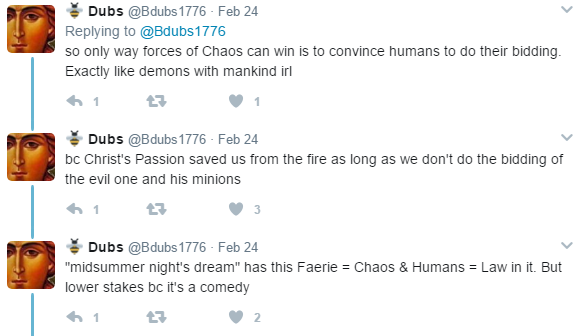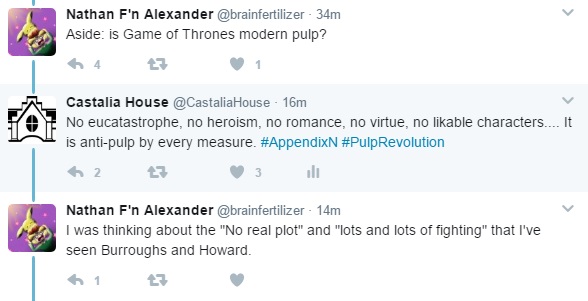SENSOR SWEEP: Disparaging Implications, Penetrating Philosophy, Dirdir Heaven, and Straight-up Adventure
Monday , 10, April 2017 Sensor Sweep 11 Comments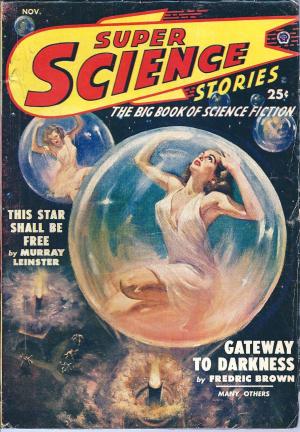 D&D (Autarch) Alien Technology in BCK, Or “Science Fantasy is Best Fantasy!” — “The primitive mortal residents of Kanahu have little understanding of the nature of the alien contraptions carried by the mysterious visitors. Before they can use a piece of alien technology, they must first understand what it is. This carries risks far greater than even the identification and use of regular enchanted items. Even the most backward barbarian from the wilds of Enyom can grasp what an axe is and can use it – enchanted or not – and thus can understand its use through trial and error without risking any significant mishap. But replace that axe with a visitor plasma pistol, and the barbarian – or even the sorcerous wise-woman from his tribal village – will soon find himself scratching his head, perplexed by the strange contraption.”
D&D (Autarch) Alien Technology in BCK, Or “Science Fantasy is Best Fantasy!” — “The primitive mortal residents of Kanahu have little understanding of the nature of the alien contraptions carried by the mysterious visitors. Before they can use a piece of alien technology, they must first understand what it is. This carries risks far greater than even the identification and use of regular enchanted items. Even the most backward barbarian from the wilds of Enyom can grasp what an axe is and can use it – enchanted or not – and thus can understand its use through trial and error without risking any significant mishap. But replace that axe with a visitor plasma pistol, and the barbarian – or even the sorcerous wise-woman from his tribal village – will soon find himself scratching his head, perplexed by the strange contraption.”
Traveller (TrollBones) Mr. Miller’s Remarks — “Things got a little fraught when discussion turned to modern SF literature and Marc’s opinions of such. He talked about sampling current works, but still prefers straightforward action-and-engineering tales to esoteric socially-focused stories. The tension came when he openly referred to authors of award-winning stories that lacked ray-guns and spaceships as ‘social justice warriors’ and some of the audience reacted negatively (me included) to the disparaging implication, to his mild surprise. He pointed out that he’s proud to have broached non-binary gender in his latest Traveller novel, but the way he discussed it indicates he still feels that’s a subject best dealt with obliquely. My interpretation of the whole uncomfortable exchange was that Marc Miller didn’t mean ‘SJW’ with the full vehemence that gutter-scum like the Sad Puppies and GamerGaters do, and probably wasn’t fully aware of that context. He sees himself as liberal-minded, but it’s in an old-hand way, ‘a little edgy.'”
Appendix N (Vintage Novels) The Hitch Hiker’s Guide to the Galaxy by Douglas Adams — “It’s hard not to compare these two classics of sci-fi comedy with each other. It would be hard to find two more dissimilar books, even given the genre similarities. The Hitch Hiker’s Guide to the Galaxy is cynical, dry, and British. The High Crusade is idealistic, brash, and American, and this helps it to emulate the medieval character in ways that bring tears to this history-lover’s eye. The Hitch Hiker’s Guide to the Galaxy, on the other hand, is thoroughly up-to-date and agnostic. Its absurdist view of the world, which provides such a barrel of laughs, only masks a profoundly empty and depressing philosophy.”
Pulp Revolution (Brink’s Chaos Theory) Review of the Thorne Legacy on Castalia House — “I happened to find this when I noticed a spike in sales for that particular book. Wondering why that might have spontaneously happened, I consulted the trusty oracle Google and discovered this blog. It’s a nice review and an interesting discussion about the wider scope of science fiction. A conversation I was flattered to be mentioned in.”
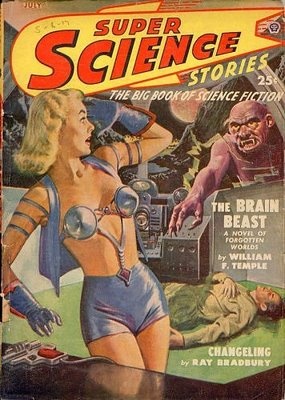 Game Blogging (Trollsmyth) The Road to Victory — “The more fun we had, and the more we talked about our fun and shared it, the more other folks wanted a piece of our action. That’s what created the success of the OSR as an influential movement in the larger sphere of RPGs. Not any attempt to strongly codify what the OSR is, or an internally coherent logical structure, or deeply penetrating philosophy.”
Game Blogging (Trollsmyth) The Road to Victory — “The more fun we had, and the more we talked about our fun and shared it, the more other folks wanted a piece of our action. That’s what created the success of the OSR as an influential movement in the larger sphere of RPGs. Not any attempt to strongly codify what the OSR is, or an internally coherent logical structure, or deeply penetrating philosophy.”
Appendix N (Into the Night) Appendix N Challenge: The Ship of Ishtar By Abraham Merritt — “The story was unlike anything that I’ve read in a very long time indeed. Virtues such as bravery, loyalty, and love were given primacy and evil was defeated because of them. There were few shades of gray to be found and when they were they were shown to be weaknesses. Not a view that’s very popular these days to be sure.”
From a Certain Point of View (Tenkar’s Tavern) Can You Map the OSR by “The Politics of Personalities?” — “The south of the U.S. seems like the powerhouse of traditional OSR gaming. Often seems like there is a a bit of a cultural shift between people who seem like the more liberal members of a conservative community (Southern U.S.) and the more liberal members of a liberal community (Coastal U.S. and Toronto). I get the vague impression that there is maybe a very large community of people in the Southern U.S. who interact very little, or not at all, with the internet and are therefore almost invisible from our point of view.”
Genre Wars (Injustice Gamer) The Sleeper Must Awaken: A Defense of Dune — “Further argument against this is the fact that the Arabs have not reclaimed any of the desert, yet the Jews in Israel have indeed done so. Frank Herbert did extensive research into efforts to reverse desertification, and applied that to the preparations of the Fremen for the return of rain. Not to mention that Mohommadans do not search for a Messiah, but Jews, especially zealots, in the time of Christ, were, and especially for a warrior to deliver them.”
Genre Wars (Don’t Split the Party) Your Response is Bad and You Should Feel Bad — “In Islamic eschatology the ‘Guided One’ (or the Twelfth Imam, etc.) will come to earth just before the Last Days and the yam al-quayammah, the Day of Judgment, to fight the Masih al-Dajjal (‘anti-Messiah’) to rid the world of evil for Allah. This is Comparative Religion 105 level stuff. This is ‘I watch PBS sometimes’ type knowledge. This is an ‘I am too lazy to spend the time to google ‘Islam messiah’ and read the top hit’ error of fact. In Dune Paul takes the name Muad’dib. The Arabic word for ‘Guided One’ is Mahdi. Yes – Paul is meant to be a messiah figure!”
Appendix N (QuQu Media) Swords And Deviltry by Fritz Leiber – Book Review — “The Unholy Grail, however, is much better paced than the story that preceded it, and much more exciting as well. Though it introduces the character of Mouser, the story is told mostly from the perspective of a girl named /Ivrian, one of Mouser’s fellow magic students. But we do see a few of scenes from Mouse’s perspective, such as the opening scene where he discovers his magical mentor dead and his house in ruins and the story’s climax. This kicks off a quest for revenge against the man who murdered him: the Duke Janarrl, Ivrian’s father.”
Appendix N (Swords & Stitchery) Warriors of The Red Planet Second Edition Rpg System Unboxing & Commentary — “All of the familiar faces are there from Edgar Rice Burroughs and the Lovecraft circle including Albert Otis Kline but there’s plenty of new material to bring a fresh Martian prospective to life on Mars. The speed of the system is as good as OD&D and in some places far more clear.”
Appendix N (Jon Del Arroz) The Trad Pub Mindset On Christianity — “It wasn’t all that long ago that Christianity in Science Fiction and Fantasy was the norm. It’s been written out of literary history by secularists that want to reshape the genre, and is touched on quite a bit in Jeffro Johnson’s Appendix N, which goes over the literary history of what inspired Dungeons & Dragons. The truth is, we’re not that far removed from C.S. Lewis or Tolkien, men who professed Christianity openly and weren’t afraid.”
Appendix N (Gaming While Conservative) Say My Name! — “I threw my players into a large vale where two groups of aliens were at war over a wrecked spaceship. At one end were the Chasch and the other were the Dirdir. The current inhabitants were generations removed from the original castaways, and didn’t know that the ‘temple’ at the top of the peak in the middle of the vale was a wrecked ship. Legends told it was a gateway to Dirdir heaven, and the PCs were promised all the wealth of the Dirdir village if they helped. Or they could hit the temple. Fearing traps, (don’t we all!) they chose to launch the raid on the Chasch village, which allowed the Dirdir to sneak into the temple and escape from the planet – when they saw that ship liftoff from the mountaintop, the players realized they had made the wrong choice.”
Pulp Revolution (Writings on Writing) Introducing A Greater Duty, Part 2: What This Story Is, Plus a Discussion of Genre and Realism — “In recent years, I have seen a similar movement with fantasy, where people are becoming more and more concerned with ‘realism,’ and with stories being elevated in status by virtue of being more ‘realistic.’ This includes a movement focused on ‘realism’ in fantasy, whether in regard to weapon usage, living conditions, the roles of women, presence of minorities, or even the existence of good and evil. We’ve seen a move toward more ‘gray’ stories, with heroes that are awful people in many respects, villains that are more misunderstood than evil, and more of an emphasis on being ‘dark,’ notable with the emergence of ‘grimdark’ as a subgenre.”
D&D (Classic RPG Realms) D&D and AD&D are Different Games — “The last time I allowed myself to stand up and say ‘I want to play AD&D’ (even though we played OSRIC at first because the other players didn’t have the rulebooks) I experienced something quite unique and satisfying. I did find that in less than one adventure, not only was the game and its mechanics and spirit coming back to me, I was beginning to apply rules that I had not really incorporated into play previously. I was, of course, older, wiser, and frankly, smarter. I was also better at running a game and at understanding it. But something else also occurred. The more we played, the more the game challenged my players in a good way; within the system. We began to have deep discussions about rules and design and how they affected the game and what they implied for play. They turned to the rules and we had discussions which deepened our immersion in the game world that was AD&D.”
Pulp Revolution (Seagull Rising) The Measure of Success — “Everybody I interact with in the Pulp Revolution has a winner’s mindset. They are relentlessly positive individuals who channel their energy into their work and into each other. They don’t just work alone, tossing stories into the cold, harsh marketplace. They have the brains to look back at what worked with the pulps, to take them apart, and put them back together again. They have the desire to dig down into the roots of sci-fi, even the obscure little off shoots, to learn more about them. They have the energy – writing their own works, reading, discussing, analyzing, experimenting, all of it in addition to handling the daily stress of their normal lives. They have the sort of open-mindedness, the willingness to reconsider their beliefs in light of new information, the willingness to listen to enthusiasts of the Campbellian and New Wave revolutions – provided they bring their A-game and present cogent arguments, they have been embraced by the Pulp Revolution.”
Nobody Told Me! (Into the Night) Appendix N Challenge: The Dying Earth by Jack Vance — “I have no idea how I missed this book growing up, I would have loved it. I’ve already suggested to a grandson that he take a look at it, seeing as how he’s at the perfect age for it. Each one of the tales builds upon the ones that came before a nifty technique that I can’t remember seeing used before, at least not as cleverly. The characters live and breathe, their motivations strong and reading their stories was always a genuine pleasure. The language is direct and uncomplicated, the speech clear and there is no attempt to obfusticate or confuse. I guess what I’m trying to say is that there is nothing that comes between the reader and the story.”
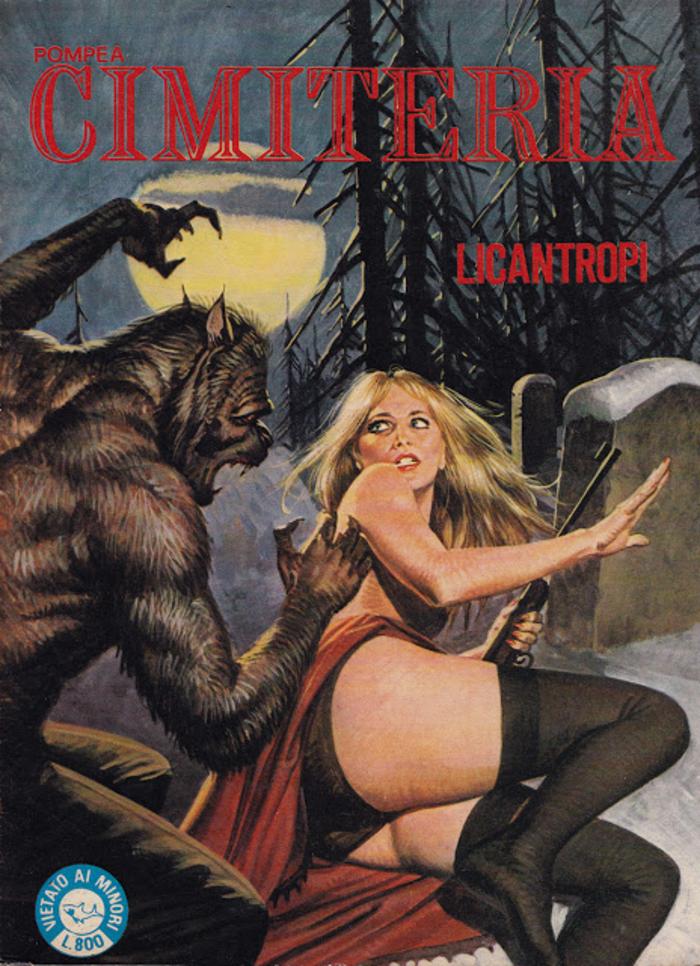 Pulp Revolution (Kairos) A Winner’s Mindset — “Yes, sci-fi is the worst selling genre. Yes, the Hugos are an orgy of intersectional logrolling. After the New York literati and their sycophants have burned the genre down, the indie and small press authors who are currently toiling to cultivate careers will find the field rich for sowing.”
Pulp Revolution (Kairos) A Winner’s Mindset — “Yes, sci-fi is the worst selling genre. Yes, the Hugos are an orgy of intersectional logrolling. After the New York literati and their sycophants have burned the genre down, the indie and small press authors who are currently toiling to cultivate careers will find the field rich for sowing.”
D&D (Autarch) The Mistress of War — “All warmistresses are blessed with a charismatic ferocity. When attacking with one-handed melee weapons or thrown weapons, a warmistress may apply her CHA modifier instead of her STR modifier on her damage rolls. This damage bonus is increased by an additional +1 at 1st level and another +1 at 3rd, 6th, 9th, and 12th level.”
Old School (Save Versus All Wands) I Just (Re)Discovered Old-School Gold – It’s 1st Edition Tunnels & Trolls — “Back in the day, I had a dim awareness of T&T. But I turned up my nose at it at that time, taking Gary Gygax at his implied word that Advanced Dungeons & Dragons was the ‘official’ fantasy game of record and everything else was either for weirdos or kids. Plus I had heard that Tunnels & Trolls was sort of jokey – with silly names for spells and the like. Also, it had what seemed to me to be an excessive amount of solo adventures, further evidence that its purchasers and players were weirdos – they had no friends.”
Old School (Save Versus All Wands) REVIEW: 1st Edition Tunnels & Trolls, Part 1 — “St. Andre reveals elsewhere that he originally wanted to call the game ‘Tunnels & Troglodytes.’ Wiser heads prevailed. There would be tunnels and there would be trolls. So, how did he illustrate the cover of the game? There are no tunnels and no trolls. Instead, there’s a unicorn, standing on a grassy bank, watching a nude (it is assumed – some of her is under the surface of the lake or pool) woman giving herself a sensual bath. I don’t want to overemphasize the sensual part (though it’s certainly present) but rather, the wonder. Here’s a window into a fantastic world: Don’t you want to go there?”
D&D (Dragonsfoot) Is Holmes Basic my perfect D&D? — “I really like OD&D, but I chafe at the total lack of structure. I really like AD&D 1e, but would prefer something simpler and clearer. I like BD&D, but I think OD&D makes for better campaigns (more free-wheeling and idiosyncratic). It strikes me that Holmes Basic D&D, with enough nudging (like we see in the Holmes Companion, in Blueholme Journeymanne and in other fan projects as well), can be used to play something that hits on all of these notes—a unified early D&D experience that stays true to its roots.”
Nothing to See Here (SuperversiveSF) REVIEW: “Sword and Flower”, by Rawle Nyanzi — “Here’s the thing: I know I’m supposed to focus on the pulpy formula, and how it affects and improves the work…but I can’t, because I just did not care about the characters. They weren’t people, they were automatons who reacted the way they did in order to push the plot forward. They didn’t have normal human reactions to events. As a result, even though it’s nice, for once, to have a feminine-ish (it’s hard for me to say feminine when she’s fighting monsters right alongside the male hero) heroine and masculine hero, I didn’t really care because why would I care about these people? They’re not people. They’re robots. With Mash this is even more egregious since he acted exactly the same as the other Puritans anyway! If another Puritan warrior suddenly changed his mind and decided he liked Dimity, we’d have a clone of Mash. I just couldn’t get invested.”
Do we revisit the flames?
Honestly, I’d rather not this week. Thanks for the link!
Jordan Peterson’s praise of Milo @ 46:46 – 48:32
(particularly @ 48:08)
htt ps://www .youtube. com/watch?v=HzZ9h7bM6QE
Thanks, Jeffro!
Who is Nathan F’n Alexander and why does his mom let him play with her smartphone?
The problem with Fafhrd and the Grey Mouser is that most editions I’ve seen (all of them?) reprint by story chronology rather than publication order, so many people will naively read The Snow Women (1970), which makes a terrible first impression. The see what the fuss is about, it’s better to start with the second book, which contains the better 1940s-written stories.
-
I would agree with that. I can appreciate the origin stories, but they aren’t where I would start a new reader.
-
Aye. If/when we receive the next batch of omnibus volumes, I hope that they’ll learn from WS/Del Ray REH volumes.
Thanks for the link, Jeffro. To my surprise, that post was almost twice as popular as my I, Robot review. I guess Fritz Leiber has become more popular than Isaac Asimov.
-
As it should be. Honestly, I consider some of Fritz’s SF to be superior to a large chunk of his F&TGM tales. A couple of his novels anticipated The Matrix and THE WANDERER — written in the early ’60s — has some scenes toward the end that strongly presage Star Wars.
Fritz was an ERB and Haggard fan, so he had a natural advantage over Asimov. I would be fine with Fritz replacing Clarke or Azzy in the “Big Three”.
